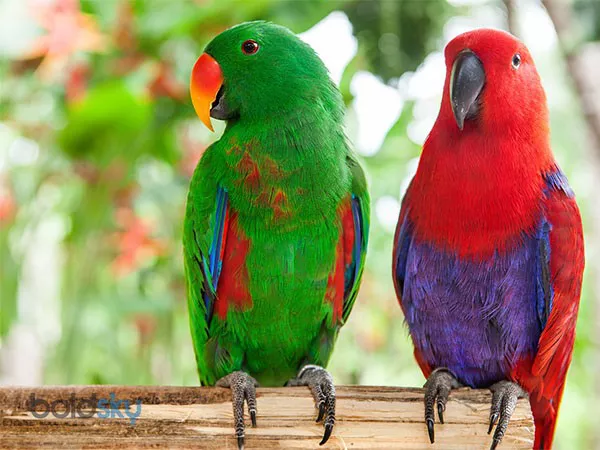Betta fish, particularly the Half Moon Betta, are among the most popular freshwater fish in the aquarium hobby. Their stunning colors, elaborate fins, and fascinating personalities make them a favorite among both novice and experienced fish keepers. But a common question many aquarists ask is: How long do Half Moon Betta fish live?
Understanding the lifespan of a Half Moon Betta requires a look at various factors that influence their health and well-being. From genetics to their environment, diet, and care, there are several aspects that determine how long these captivating creatures will thrive in your aquarium.
In this article, we’ll explore everything you need to know about the lifespan of Half Moon Betta fish, including the factors that contribute to their longevity, the best practices for caring for them, and how you can maximize the life expectancy of your Half Moon Betta.
What Are Half Moon Betta Fish?
Before diving into their lifespan, it’s essential to first understand what makes Half Moon Betta fish unique.
The Half Moon Betta is a variant of the Betta fish, which belongs to the Betta genus within the family Osphronemidae. Betta fish, also known as Siamese fighting fish, are native to Southeast Asia, particularly Thailand, Laos, Cambodia, and Vietnam. They are well-known for their vibrant colors, long flowing fins, and territorial behaviors.
The Half Moon Betta, specifically, is a type of Betta fish that is recognized for its distinct fin shape. The tail of a Half Moon Betta forms a perfect 180-degree spread, resembling a crescent moon — hence the name “Half Moon.” This trait, along with its vivid coloration and sometimes elaborate fin displays, makes it one of the most prized Betta variations in the aquarium trade.
Lifespan of Half Moon Betta Fish
In general, the lifespan of a Half Moon Betta fish is between 3 to 5 years, with many fish living on the upper end of this range when cared for properly. However, it is important to remember that their lifespan can vary based on various factors, including genetics, environmental conditions, diet, and overall care.
1. Genetics and Breeding
The lifespan of any Betta fish, including Half Moon Bettas, is heavily influenced by genetics. Betta fish that are bred in captivity for specific traits (like vibrant colors or fin shapes) may have a shorter lifespan than wild-caught Bettas. Overbreeding can lead to weaker fish with reduced immunity, making them more susceptible to diseases and health problems that can shorten their lives.
When purchasing a Half Moon Betta, it’s a good idea to seek reputable breeders who prioritize healthy breeding practices rather than just appearance. Healthy genetics can lead to a longer and more fulfilling life for your Betta.
2. Environmental Factors
The environment in which your Half Moon Betta lives plays a significant role in determining how long it will live. Bettas are known for their adaptability to a range of water conditions, but that doesn’t mean they thrive in poor environments. Several environmental factors affect the lifespan of Half Moon Bettas:
Water Quality: Clean, stable water is vital. Bettas are particularly sensitive to water changes, and poor water quality can lead to stress, illness, and premature death. To ensure good water quality, regular water changes (at least 25–50% every week) are essential.
Water Temperature: Betta fish are tropical fish and require water temperatures between 76°F to 82°F (24°C to 28°C). Water that is too cold or too warm can stress the fish and reduce their lifespan. A reliable aquarium heater is recommended to maintain a stable temperature.
pH Levels: Bettas prefer a pH level between 6.5 and 7.5. Water that is too acidic or too alkaline can cause health problems over time.
Tank Size: While Bettas can survive in small tanks, a larger aquarium (at least 5 gallons) is recommended for a longer, healthier life. A small tank leads to stress, poor water quality, and limited space to move, which can all shorten a Betta’s lifespan.
3. Diet and Nutrition
A proper diet is crucial for the health and longevity of your Half Moon Betta. Bettas are carnivores and need a diet that consists of high-quality protein sources. A balanced diet will help maintain their color, boost their immune system, and prevent health issues that could shorten their lives. A typical Betta diet should include:
High-Quality Betta Pellets: Choose pellets that are specifically formulated for Betta fish, as these contain the right balance of proteins and nutrients.
Frozen or Live Foods: In addition to pellets, consider offering live or frozen foods like brine shrimp, bloodworms, and daphnia. These will add variety to their diet and ensure they get enough protein.
Vegetables: Although Bettas are carnivores, occasional vegetable matter like spinach or peas can aid in digestion and provide extra nutrients.
Overfeeding or poor-quality food can lead to obesity, digestive problems, and other health issues. A well-balanced diet, fed in appropriate portions (typically 1–2 meals per day), will support your Half Moon Betta’s health and help it live a longer life.
4. Tank Mates and Social Interaction
While Half Moon Betta fish are known for their territorial nature, they can live peacefully with other species under the right circumstances. However, having aggressive tank mates can stress out your Betta, leading to a weakened immune system and a shortened lifespan. It’s essential to carefully select compatible species that won’t challenge or intimidate your Betta.
Some good tank mates for Bettas include:
- Corydoras catfish
- Neon tetras
- Otocinclus catfish
- Snails (like Nerite snails)
If you decide to keep a male Half Moon Betta with other Betta fish, avoid housing them together, as they will likely fight. Similarly, avoid placing them with fin-nipping species or aggressive fish that could cause stress.
5. Stress Management
Chronic stress is one of the most significant factors that can decrease the lifespan of any Betta fish, including the Half Moon variety. Bettas are sensitive to sudden changes in their environment, poor water quality, overcrowding, and incompatible tank mates. The more stressed a Betta is, the more vulnerable it becomes to diseases like fin rot, swim bladder disease, and other infections.
To minimize stress for your Half Moon Betta, make sure:
- The tank is the appropriate size.
- The water is clean and stable.
- The tank is free of bullies and aggressive tank mates.
- There are plenty of hiding spots, plants, and decorations to create a peaceful environment.
- You avoid frequent changes in lighting or temperature.
6. Health and Disease Prevention
The general health of your Half Moon Betta can also significantly impact its lifespan. Bettas are susceptible to a variety of diseases, including:
Ich (Ichthyophthirius multifiliis): A parasitic infection that causes white spots on the skin and fins.
Fin Rot: A bacterial infection that causes fins to deteriorate.
Velvet Disease: A parasitic infection that causes a golden or rust-colored dusting on the body.
Swim Bladder Disease: A condition that affects the Betta’s ability to swim properly.
By maintaining good water quality, feeding a balanced diet, and minimizing stress, you can prevent many of these diseases. In addition, monitoring your Betta regularly for any signs of illness and seeking prompt treatment when necessary can help extend its life.
How to Maximize the Lifespan of Your Half Moon Betta Fish
While genetics and some factors are out of your control, there are several steps you can take to maximize the lifespan of your Half Moon Betta fish.
1. Provide a Stable and Clean Environment
Regularly monitor the water temperature, pH, and ammonia/nitrite/nitrate levels in your Betta’s tank. Water changes are essential for maintaining a healthy environment. Use a good filtration system to help keep the water clean, but ensure that the current is not too strong, as Betta fish do not like strong water movement.
2. Feed a Balanced Diet
Feeding your Betta the right food in appropriate quantities will promote its health and well-being. Be mindful not to overfeed, as excess food can lead to water contamination and obesity.
3. Reduce Stress
Create an environment that is calm and peaceful for your Half Moon Betta. Avoid overcrowding and choose appropriate tank mates. Provide hiding spots, plants, and decorations to give your Betta a sense of security.
4. Observe Regularly
Keep a close eye on your Half Moon Betta. Watch for any changes in behavior or physical appearance, such as loss of appetite, lethargy, or changes in coloration. Early detection of any health issues can make a significant difference in treatment and recovery.
5. Maintain Proper Water Parameters
Test the water regularly to ensure the pH, ammonia, nitrites, and nitrates are within safe ranges. Keeping the water pristine and stable is key to keeping your Betta happy and healthy.
Conclusion
In summary, a Half Moon Betta fish can live between 3 to 5 years, and with optimal care, it may live even longer. The lifespan of a Half Moon Betta is determined by a combination of factors, including genetics, water quality, temperature, diet, and the overall environment. By providing a stable and clean tank, feeding a balanced diet, minimizing stress, and regularly monitoring the health of your Betta, you can maximize its life expectancy and ensure that it remains a colorful and captivating presence in your aquarium for years to come.
If you are committed to providing the best care, your Half Moon Betta will reward you with vibrant colors, a lively personality, and a long, healthy life.
Related Topics:























